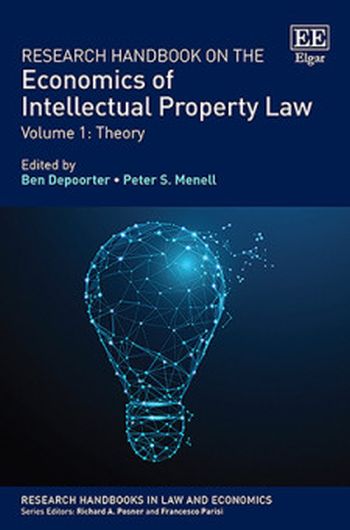
Both law and economics and intellectual property law have expanded dramatically in tandem over recent decades. This field-defining two-volume Handbook, featuring the leading empirical legal and law and economics scholars, provides wide-ranging and in-depth analysis both of the economic theory underpinning intellectual property law, and the use of analytical methods to study it.
Volume 1 explores the analogy between intellectual property and tangible property. This volume also considers the role that economic incentives play in promoting innovation and creativity, the economics of intellectual property institutions, and the interplay of intellectual property, development, and international trade.
Volume 2 explores data sources, the use of patent citation data, patent valuation, empirical studies of intellectual property modalities (patent, copyright, trademark, and trade secrets) and institutions, technological change impacts on technology and content industries, the use of experimental methods to study intellectual property law, economic history research, political economy, and knowledge commons research.